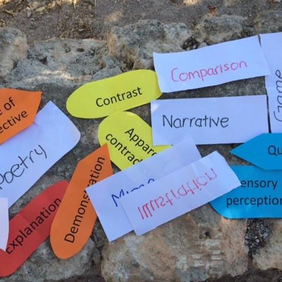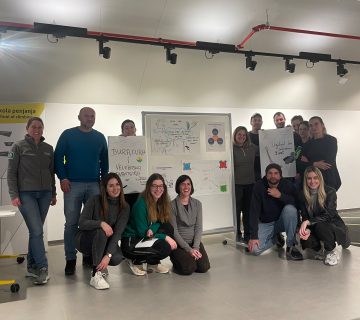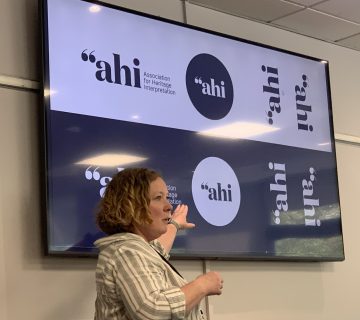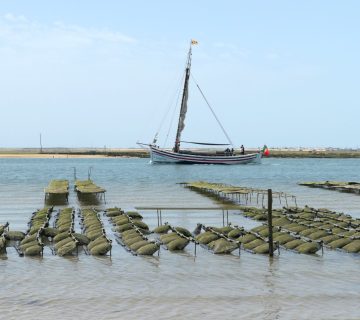A memory, a landscape, or a monument built 2,000 years ago, can inspire values such as freedom of speech, or solidarity, capable of inspiring sustainable lifestyles. Improving people’s skills as heritage interpreters can help local communities participate in revealing the many meanings of heritage.
This is the logic of the DELPHI project (www.delphi-eu.org) – Development of continuing professional development for heritage interpretation staff to facilitate lifelong learning for social inclusion and European cohesion. The project will use heritage interpretation to inspire values, like peace, freedom, tolerance and solidarity in the context of a new Erasmus+ project, which runs until late 2020. The seven partners (including IE as an associate partner) from Germany, Greece, Belgium, Italy and the UK are developing a blended learning training package combining interactive online with face-to-face modules to help more participants – mainly planners and adult educators – to become familiar with an inclusive, European approach to heritage interpretation and learn how to benefit from it in their work.
As with all partnership projects, our first task was to take stock of the ways other projects or communities have developed training in the field of interpretation and European values. Our focus was on projects using innovative, participatory approaches with hard to reach groups in the adult learning and heritage sectors. During this process, several of the partners revealed that they were finding it hard to grasp what heritage interpretation actually was. It was decided we should experience a taster interpretation course.
Interpretive training is always a challenge, especially so when approaching harder to reach audiences. Heritage interpretation can’t be taught through lectures, in a classroom. Trainees must experience it for themselves. On-site practice, discussions, presentations, peer evaluation, case studies, testing the principles of quality heritage interpretation in one’s own context are just a few of the training tools an interpretive trainer can use to achieve their goal.
This was the experience the DELPHI partners were treated to in Cagliari in May. Our partnership meeting was scheduled to coincide with our Italian partner’s – Imago Mundi – largest event, ‘Monumenti Aperti’, which took place in over 60 Sardinian municipalities over seven weekends. All partners experienced this community-led heritage interpretation event first hand, and then had a taster interpretation training session led by the Mediterranean Centre for the Environment, based on a training syllabus developed in a previous EU Lifelong Learning Programme project, InHerit. We looked at examples of projects applying the central themes of the Council of Europe’s Framework Convention on the Value of Heritage for Society – sustainability, accessibility and participation.
The competences used in the Inherit project are currently being adapted; between ten and 15 will be chosen for further description according to a KSA (knowledge-skills-attitudes) framework in line with the EQF (levels 4-5-6-7). Once this is done, our next job is to finalise both the competence framework and training curriculum, and adapt our technical platform. Next year we will pilot our approach with communities in our partner countries. Our results will be presented at a final conference to be held in Belgium during autumn 2020.
Sarah Wolferstan is the European Project Manager at the Centre for Applied Archaeology, a commercial consultancy and training division of the Institute of Archaeology, University College London (UCL) https://www.ucl.ac.uk/centre-applied-archaeology/about.
She can be contacted at: sarah.wolferstan@ucl.ac.uk.




